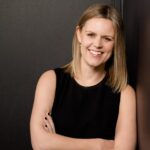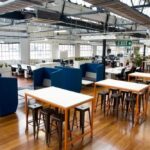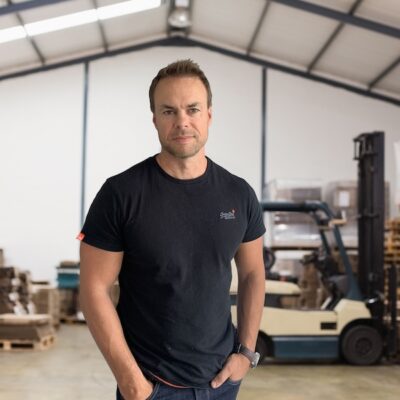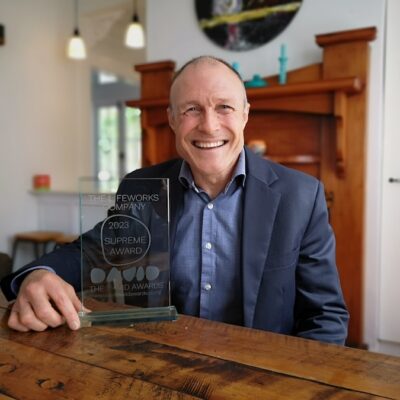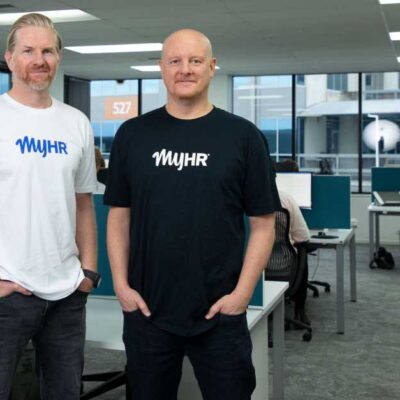Global Centre of Possibility launches leadership program
Just months after its formal establishment towards making New Zealand an international hub of economic and social possibility, the Global Centre of Possibility @ AUT is launching its flagship programme for […]
Just months after its formal establishment towards making New Zealand an international hub of economic and social possibility, the Global Centre of Possibility @ AUT is launching its flagship programme for possibility leadership.
Thirteen access entrepreneurs and innovators were recognised at a 30 April event that heralded the launch of their projects and social change initiatives and innovation that are designed to contribute to a fully accessible Aotearoa for every citizen and visitor.
One such entrepreneur is Ari Kerssens, a 26-year-old Aucklander who lost most of his sight at 19 due to a genetic eye condition. Having since become an accessibility advocate, he is collaborating on Free Fares to Freedom, a petition calling on government to reinstate the access to affordable, independent mobility that was available during the first COVID lockdown. The total mobility subsidy increase from 50 percent to 100 percent had profound implications for the equity and empowerment of the access community. Ari is also working on the Sight Dependent project, which has support from Creative NZ to create a framework of accessibility for art galleries in Aotearoa based in part on world-leading accessible venues in Europe, which Ari visited in a research trip before lockdown.
Ari says, “I have these two established projects, but I don’t have a lot of experience in advocacy, business or leadership, and this is the perfect time for me to gain the skills and relationships that the Possibility Leadership Programme provides. I want to be able to apply my unique perspective of accessibility, informed by my understanding of sensory neuroscience as much as personal experience – and augmented with my charisma, uniqueness, nerve, and talent – to pave the way for an all-access Aotearoa.”
Christchurch-based Cate Grace’s project involves building a community of voices that can actively participate in creating partnerships for change. Cate believes that in a society that is becoming more curious about access leadership, people must continue to build on whakapapa (what has come before).
Cate says, “I believe that we’re on the cusp of embracing diversity in Aotearoa, of truly being a team of five million. For me, the Possibility Leadership Programme is an opportunity to build whakapapa and leave no one behind. I hope to establish a grassroots framework that helps whānau with access needs, who might not yet be heard in their community, to have a voice.”
GCOP founder and Chief Possibility Officer Minnie Baragwanath says, “We and central government are supporting these entrepreneurs as they take the initiative and develop their concepts to expand possibility in communities. The calibre of these 13 people is simply stunning, proving that there is latent access entrepreneurial talent in all our communities, businesses and educational facilities, and the time is right to invest in it – access citizens in Aotearoa are taking the lead as they cannot wait for permission from the mainstream community or for power structures to change to create a fully accessible future for all.
“Access unemployment is as high as ever. New Zealand has the fifth highest employment rate for 15-64 year olds in the OECD – fifth out of 37 countries. Our unemployment rate data for the December quarter fell from 5.3 percent to 4.9 percent, astounding all economic predictions, yet the unemployment rate for access citizens sits at 11.4 percent.
Traditional incubator and accelerator programmes have their place, but they make unconscious assumptions about how all entrepreneurs should function, and they miss out on talent among those who don’t fit the mould of 90-hour weeks, 6am design sprints and hyper-stimulating environments.
“These access entrepreneurs are applying their lived experiences to find access solutions – they all know the ‘why’ and want to know the ‘what’ and ‘how’. They are coming to the GCOP to have their thinking tested and to develop concepts, tools and initiatives that the world needs now. Our role is to resource them to be business and social leaders, innovators and change makers who can give us the world we need, fit for all citizens, economically, culturally and socially.
“They are some of the best people to do this work, because as access citizens they have spent all their lives, in many cases, being creative, thinking outside the box, and developing their resilience to live successfully in mainstream spaces that are explicitly not designed to accommodate them.”
The pilot programme for access entrepreneurship is possible with support from the Office for Disability Issues in the Ministry of Social Development. AUT remains a key partner to the programme, with the GCOP partnering with the Entrepreneurship Team at AUT and the Co-Starter Programme to deliver the flagship programme.
Other partners include the GCOP’s sister organisation Be. Lab; founding Possibility Partner Sudima Hotels, which is providing accommodation for participants; and Autex, the innovative acoustic panelling and insulation company which uses recycled plastic in its materials and is converting the GCOP HQ at AUT into a fully accessible space with bespoke panelling that is suited to access citizens with hearing impairment or loss or auditory sensitivity.
Photo: (L-R) Ari, Minnie and Cate.
The Global Centre of Possibility @ AUT (GCOP) operates in partnership with AUT on the central Auckland campus. The GCOP is a New Zealand based, globally-networked centre of Possibility leadership, design and innovation with the aim of creating a future that is truly accessible for all.
The GCOP and its sister organisation, Be. Lab, work closely together to achieve this joint goal of a truly accessible future. While Be. Lab works with organisations to progress towards greater accessibility in today’s world, the GCOP pioneers and leads the next wave of social change for access citizens by building future-focussed access innovation capability so that future organisations and communities are inherently accessible by nature.
Founder and Chief Possibility Officer Minnie Baragwanath focuses on enabling leaders locally and globally to create conditions for access innovation to flourish.
AUT has also made a significant research commitment over the next 12 months towards the development of the Accessibility Index, a world-leading index for reporting on the experience of accessibility.
Visit the website here: www.gcop.co.nz

